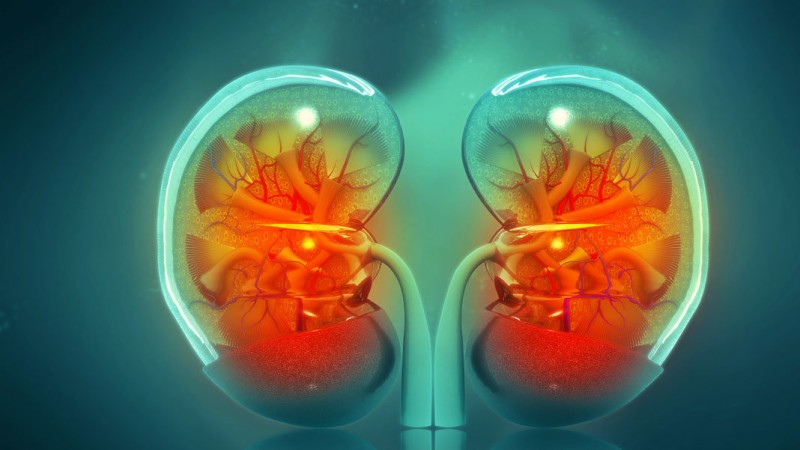
Maintaining kidney health is crucial, considering their pivotal role in filtering waste and toxins from the body, regulating electrolyte balance, managing blood pressure, and even producing red blood cells. However, kidney disease often manifests silently, with subtle symptoms that may go unnoticed until the condition worsens. Therefore, it's essential to recognize and address early signs of kidney weakness to prevent complications.
Here are some symptoms indicating potential kidney impairment:
Nausea: Nausea, often accompanied by the urge to vomit, can indicate kidney dysfunction. When the kidneys are unable to filter waste effectively, toxins can build up in the bloodstream, leading to nausea and gastrointestinal discomfort.
Vomiting: Persistent vomiting, especially when combined with other symptoms like nausea and fatigue, may signal underlying kidney issues. It's essential to monitor the frequency and severity of vomiting episodes and seek medical attention if they persist.
Loss of Appetite: Kidney dysfunction can affect appetite due to the accumulation of waste products in the body. Additionally, imbalances in electrolytes and hormones may contribute to changes in appetite. Addressing underlying kidney problems can help restore normal eating patterns.
Fatigue and Weakness: Kidneys play a crucial role in producing erythropoietin, a hormone that stimulates red blood cell production. When kidney function declines, the body may experience decreased oxygen delivery to tissues, leading to fatigue and weakness.
Insomnia: Disrupted sleep patterns can occur in individuals with kidney disease due to factors such as frequent urination, discomfort from fluid retention, or complications like restless leg syndrome. Managing underlying kidney issues can improve sleep quality.
Frequent or Reduced Urination: Changes in urination patterns, including increased frequency or decreased volume, may indicate kidney problems. Excessive urination can result from impaired kidney function, while reduced urination may signify fluid retention and compromised filtration.
Decreased Concentration: Kidney dysfunction can impair cognitive function and concentration due to factors like electrolyte imbalances, anemia, and accumulation of waste products in the bloodstream. Proper management of kidney disease can help alleviate cognitive symptoms.
Muscle Cramps: Electrolyte imbalances associated with kidney dysfunction can lead to muscle cramps and spasms. Adequate hydration, balanced nutrition, and electrolyte monitoring are essential for managing muscle cramps in individuals with kidney issues.
Swelling in Legs and Ankles: Fluid retention, known as edema, commonly occurs in the lower extremities in individuals with kidney disease. It results from the kidneys' inability to effectively remove excess fluid and can indicate advanced kidney dysfunction or heart failure.
Dry, Itchy Skin: Kidney dysfunction can disrupt the balance of minerals and nutrients in the body, leading to dry and itchy skin. Additionally, accumulation of waste products in the bloodstream can irritate the skin, causing discomfort and inflammation.
Persistent High Blood Pressure: Chronic kidney disease is closely linked to hypertension, as the kidneys play a crucial role in regulating blood pressure. Persistently elevated blood pressure can further damage kidney function, creating a vicious cycle.
Difficulty Breathing: Fluid accumulation in the lungs, known as pulmonary edema, can occur in advanced stages of kidney disease, leading to difficulty breathing. This symptom requires immediate medical attention to prevent respiratory complications.
Chest Pain: Fluid buildup around the heart, known as pericardial effusion, can cause chest pain and discomfort. This condition often occurs in conjunction with other symptoms of kidney dysfunction and requires prompt evaluation and management.
It's important to note that these symptoms may overlap with other conditions, making diagnosis challenging, especially in chronic stages of kidney disease.
To maintain kidney health, adopt the following practices:
Stay hydrated by consuming 7-8 glasses of water daily.
Follow a balanced diet rich in fruits, vegetables, whole grains, and adequate protein while limiting salt and sugar intake.
Keep blood sugar and blood pressure levels under control.
Avoid smoking and excessive alcohol consumption.
In conclusion, recognizing and addressing these symptoms of weak kidneys is essential for early detection and intervention. Individuals experiencing any of these signs should consult a healthcare professional for proper evaluation and management. Early diagnosis and treatment can help preserve kidney function and improve overall health outcomes.
THESE Morning Drinks to Help Shrink Your Belly, Try Now
You can reduce your weight by drinking the water of this fruit